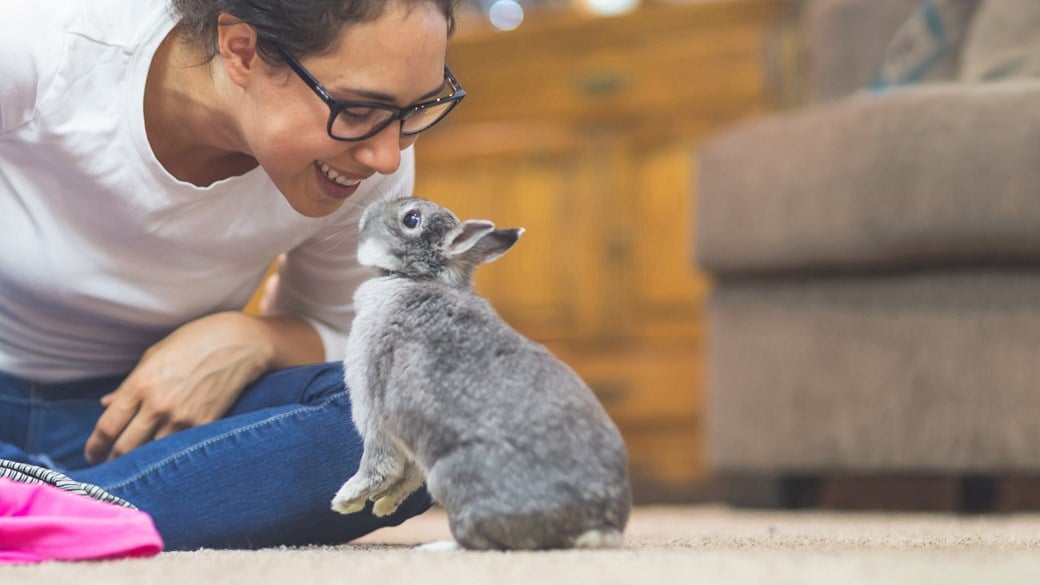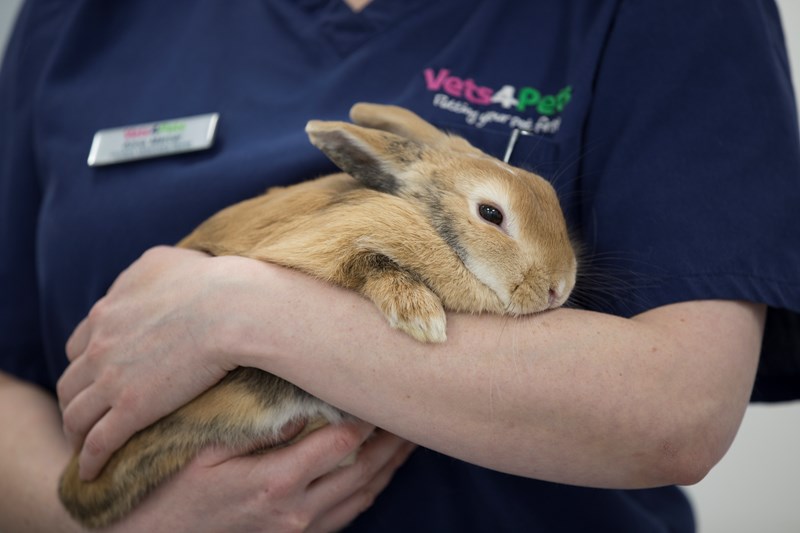
Microchipping Your Rabbit
All you need to know about microchipping your rabbit
A microchip is a small electronic device about the size of a grain of rice. The microchip is inserted under your rabbit’s skin, between their shoulder blades, via a quick injection. Once inserted, a rabbit cannot feel the microchip and the special capsule around it means that it does not break down – a microchip is designed to last your pet’s lifetime.
The microchip is coded with a unique number that can be read by a scanner. Microchips do not store personal data – this is kept against the unique identification number on a secure database. If your rabbit is found and scanned, the microchip database is accessed online and the organisation that has your rabbit, for example the veterinary surgery, a rescue centre or the police, can use the number to find your details. You can then be contacted and your pet safely reunited with you.
More about microchipping your rabbit
A qualified microchip implanter will place the microchip under the skin between the shoulder blades of your rabbit. All vets and nurses are qualified to implant microchips, and many pets have their microchip implanted at the vets. The procedure is very quick, and most rabbits experience little to no discomfort. It is very important to have microchip implantation done by a qualified individual as complications can arise if performed incorrectly.
The microchip only needs to be placed once as it is designed to last for the life of the rabbit.
Book a microchip appointmentAny time your personal contact details change, including details such as your mobile phone number, you must update the microchip company with your new details. Changing your details at your vet will not change your microchip details, as these are held by a separate company.
This is the same if you rehome a rabbit which is already microchipped. The physical chip does not have to touched, but the unique 15-digit number needs to be assigned to your details rather than that of a previous owner.
It is your responsibility to contact your microchip company to change details, but your vet can help you if you have lost your pet’s microchip number or are not sure which company your pet’s microchip is registered with.
How to update:
- Determine the manufacturer of your pet's microchip. This should be on any microchip paperwork you hold.
- Determine which database holds your contact details. From your rabbit's microchip paperwork, or from the microchip company's website, find out which database your pet's microchip is registered on. Each microchip manufacturer contracts with a specific database. NOTE: If you do not know either the database or the manufacturer, these can be determined by the chip number prefix (the first part of your rabbit's microchip number) which is each unique to a certain database. If you also do not know your pet's microchip number, contact your vet to see if they have this information stored, or arrange to have your pet brought in to be scanned so you can get the number.
- Fill out the change of details form. Each database will have a form you can fill out which will allow you to change your details. This may incur a small cost.
It is a horrible experience if your rabbit goes missing, but there are some important things that you can do:
- Tell the microchip database where the chip is registered immediately
- Contact your vet, local vet surgeries and rescue centres in your local area and leave your rabbit's details (including their chip number) with them
- Ask your neighbours to keep an eye out for your rabbit
- Put up posters in your local area with a good photo of your rabbit and your contact details
- Use social media to post about your missing rabbit and ask your friends, neighbours and local forums to share the post
Sadly, the microchip is only used as identification and does not work as a tracker.
As pet owners, losing a pet is right up on the list of things we don’t ever want to think about happening. However, it is a sad fact that many pets go missing every year.
Almost all pets can be microchipped, including cats, dogs, rabbits, tortoises, parrots, ferrets and snakes. Microchips offer a more permanent way of making sure your pet is always identifiable and that you can always be contacted in the event of them being found.
More information on microchippingInterested in complete peace of mind for your rabbit?
With our Complete Care Health Plan, you'll receive all the healthcare essentials, expert veterinary care and cost savings on routine treatments.

Rabbit Advice
Read more of our expert rabbit advice to keep your rabbit happy and healthy.
